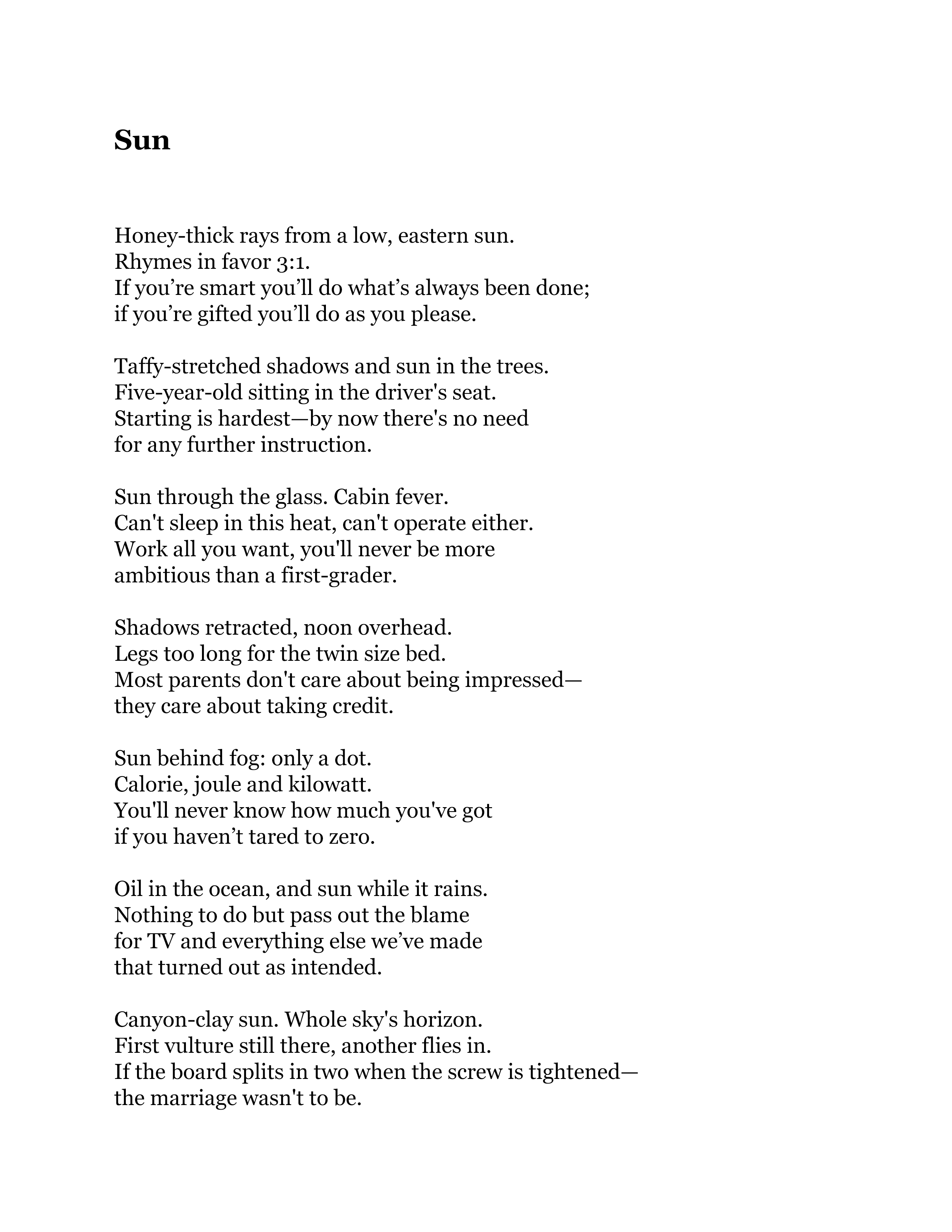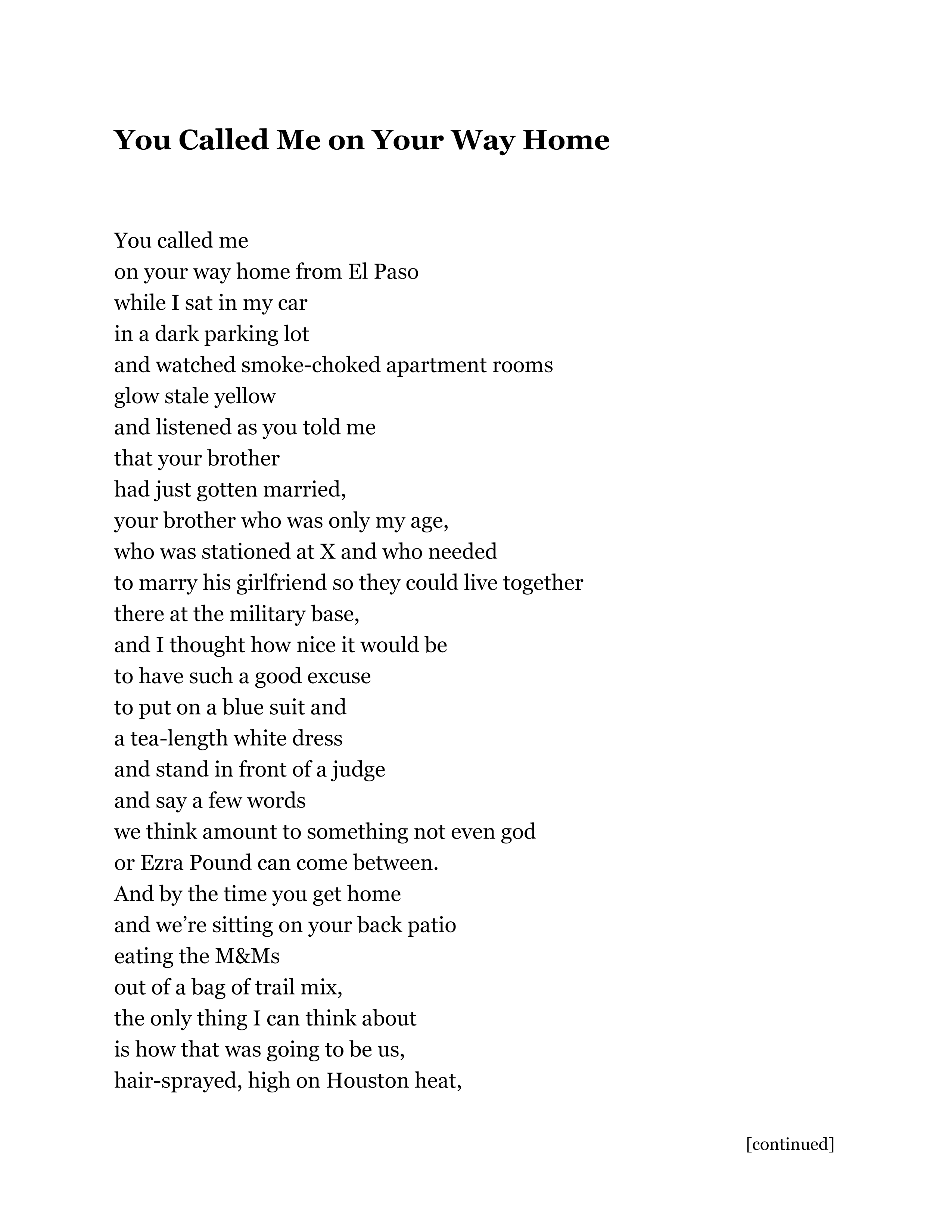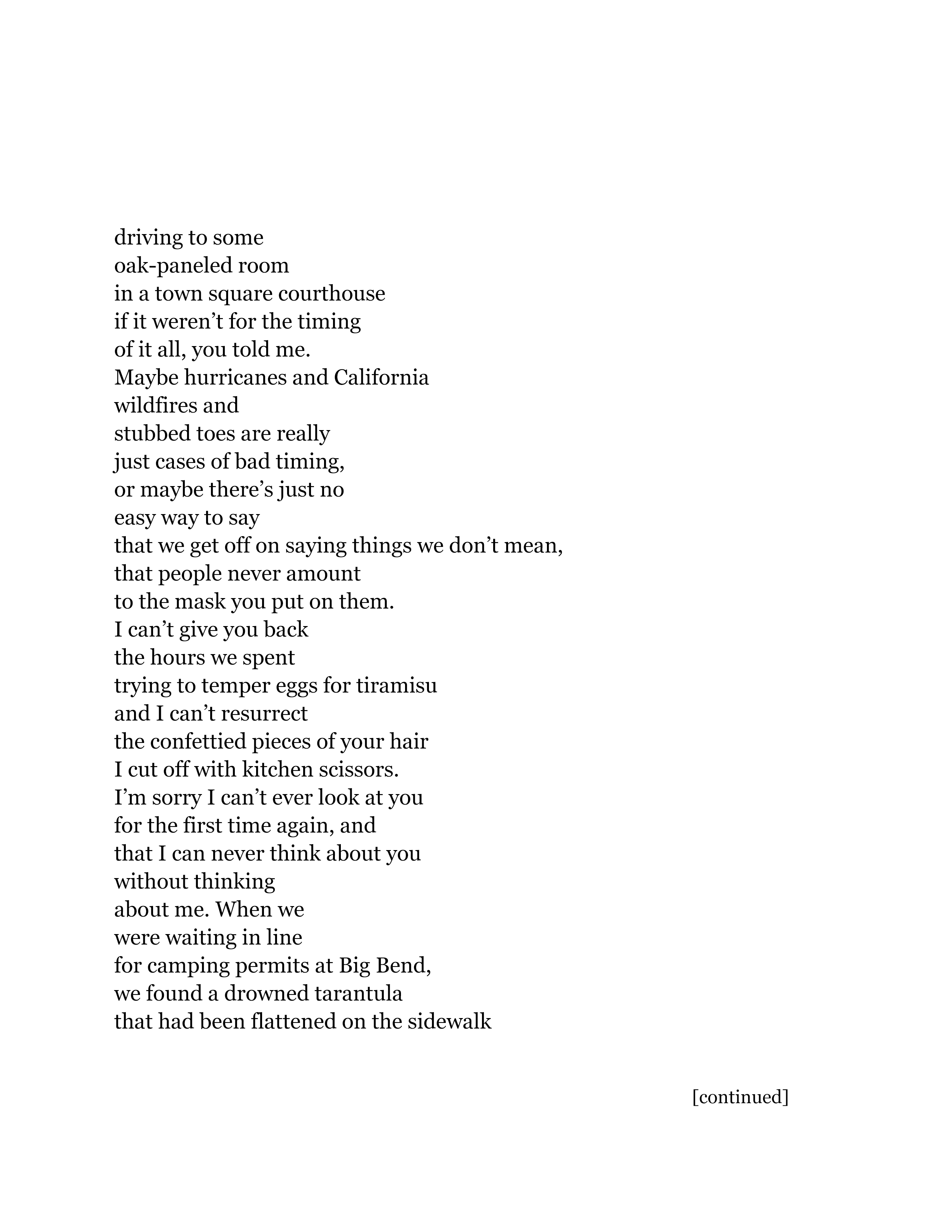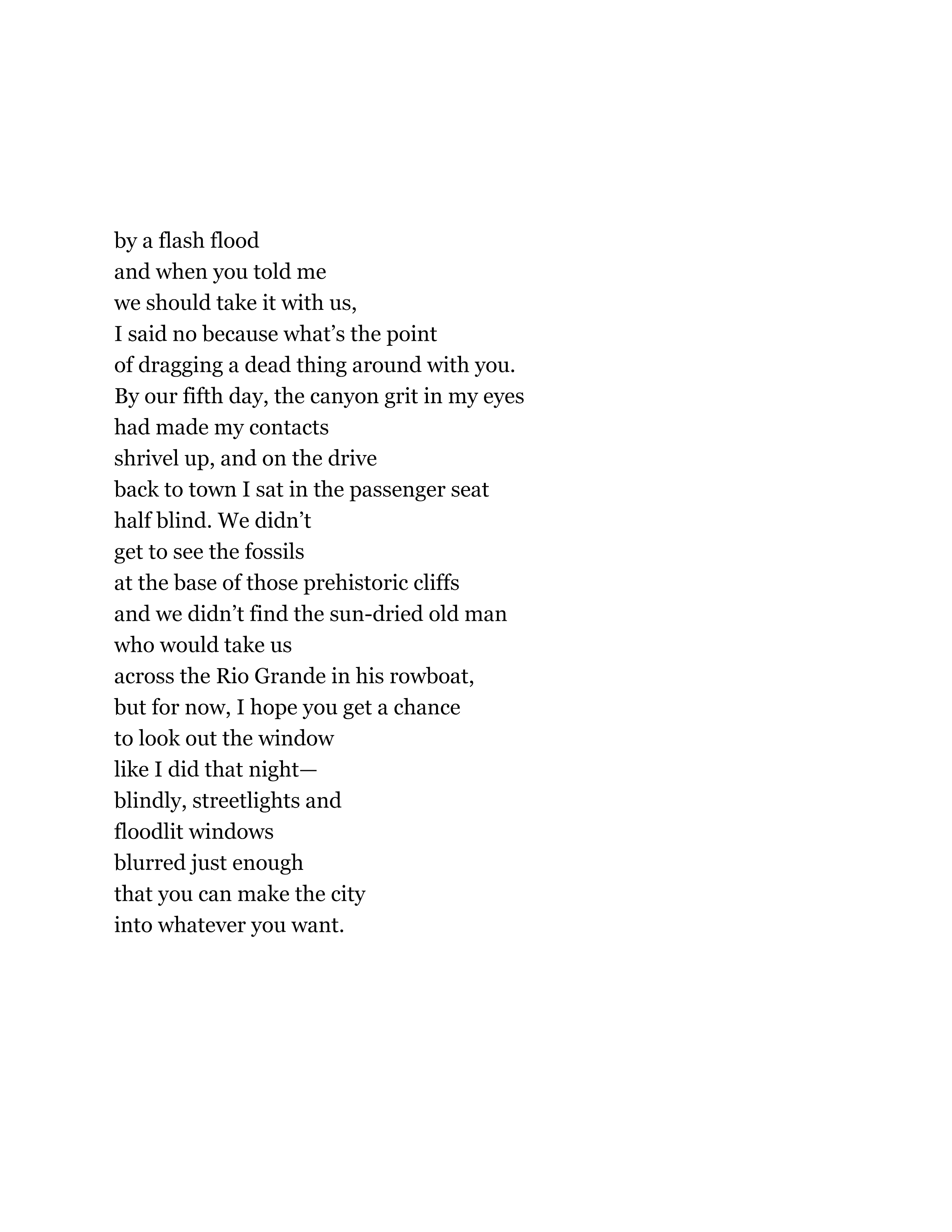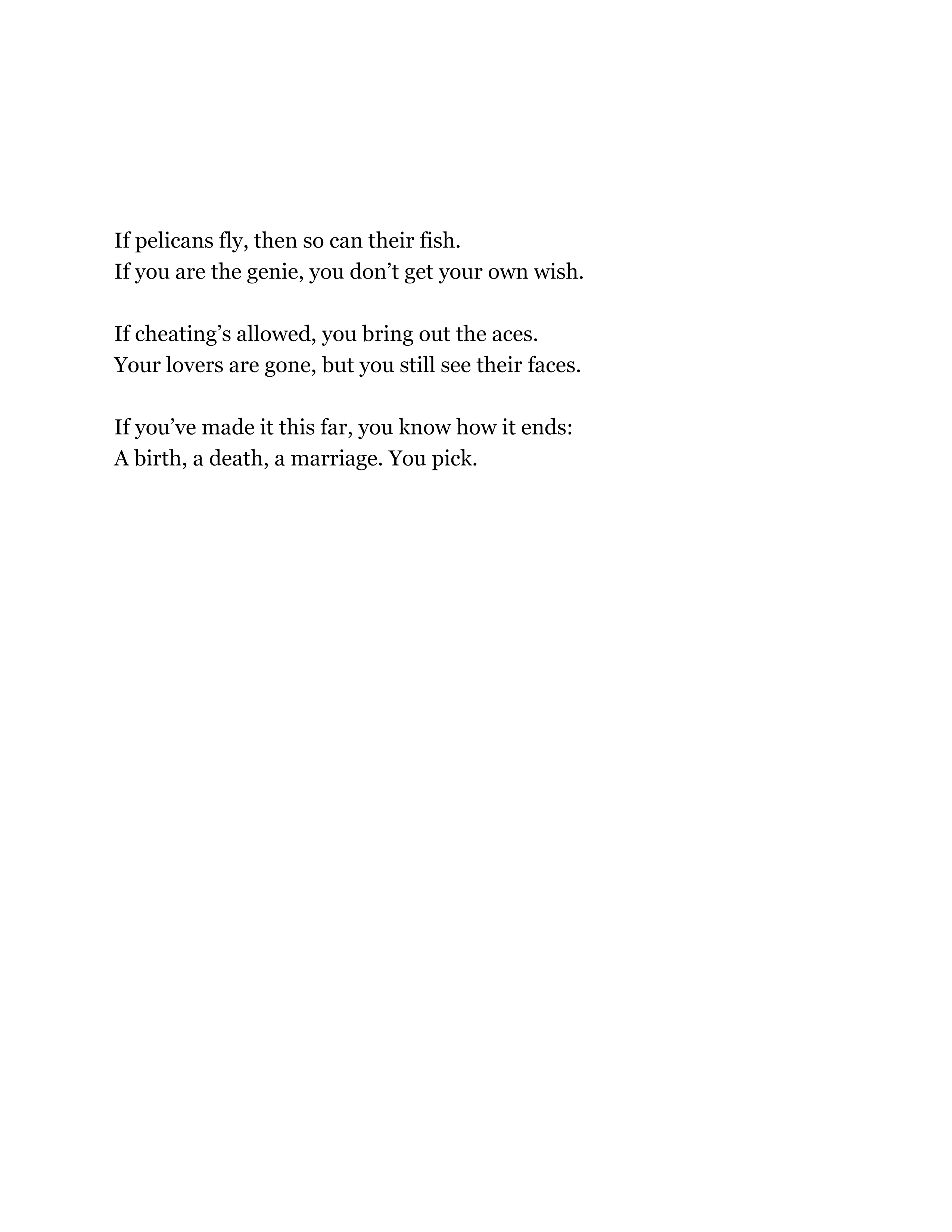3 poems by Cecilia Smith
1 essay by Ashwini Bhasi,
on the poems of Cecilia Smith
For a while, I’ve been feeling increasingly frozen and overwhelmed with anxiety about the state of our world. Why do so many people disbelieve the true reality of what is actually happening around them and focus on alternative explanations and justifications that seem to give them comfort and peace of mind? I’ve been thinking about this in terms of the Just-World hypothesis— a false belief which many people carry about the inherent stability and fairness of the world we live in. It’s often easier for us to believe that “bad things happen to bad people” rather than facing the hard and painful reality that terrible things could happen to us at any time, randomly, without any good reason. Research has shown again and again that it’s difficult for people to resist this type of thinking. If what we see challenges our beliefs, it is easier to look the other away and justify our reasons for it.
As a reader, we tend to see ourselves, our emotions, our wants and needs reflected in the poems we read. I don’t know if these three poems were written by the poet with the goal of exposing the fallibility of the human condition and our incapacity to break free from our own comfort zones. Much like the speaker in “You called me on your way home”, I find myself with grit in my eyes, sitting motionless in a passenger seat, half-blind, projecting my hopes, dreams and disappointments onto the blurry shapes of people, places and poems I see around me.
“blurred just enough
that you can make the city
into whatever you want.”
The rhymes and rhythms in “Sun” and “You Know How it Ends” create a soothing, rocking sensation periodically interrupted by a break in rhyme which creates a sudden rupture, a dissonance that shatters conformity and the rote expectations we have of the world. You rock a baby in a cradle to calm her down and get her to sleep. But the oft disrupted rocking rhythm in these poems are less of a cradle and more of a boat in rough seas inducing sea sickness. It becomes an unbearable instability that hits you again and again as soon as you get comfortably lulled by predictability.
“You’ll never know how much you've got
if you haven’t tared to zero”
The world feels unstable and unsafe when it is stripped of our anchoring beliefs of what is good and bad, and what is deserved and undeserved. And the sad truth is, as long as we are unable to strip ourselves free of biases, face our fears and vulnerabilities, and essentially, tare our mind to zero, we won’t be able to see things with clarity. But as it’s so hard to do that, we choose to take an easier path.
“Nothing to do but pass out the blame
for TV and everything else we’ve made
that turned out as intended.”
We use a cacophony of justifications, explanations, and defenses. We use self-blame to create a false feeling of control over things we don’t have control over.
“Your parents messed up but you’re still your own fault.”
We might even move towards numbly accepting the abnormal as the norm.
“If pelicans fly, then so can their fish.
If you are the genie, you don’t get your own wish.”
Who said fish don’t fly? Of course, they can! When crushed and flailing in the beaks of a pelican, aren’t fish technically flying? Technically, what does a 1.5 degree warming of the world even mean? How can such a small change cause something so catastrophic! And haven’t we always had a stable democracy? Isn’t it hyperbole to say it’s under threat. It just doesn’t make any sense.
“If you've made it this far, you know how it ends:"
Just-World thinking is what we revert to, when we want to feel safe. When we don’t want to feel discomfort. When we want to keep living our privileged lives in peace while others are suffering. It allows us to look away and be passively complicit with our silence and inaction. We become the pelican, flying high, oblivious to what is beyond its direct field of vision. We find some justification to tune out the unbearable suffering of unnecessary wars, the ever-increasing death toll, the horrific injustices. We cling to plausible deniability, we say: Don’t feel bad for the fish! Sure, they are dead, but they probably deserved it. And hey, at least they get to fly around for free.

